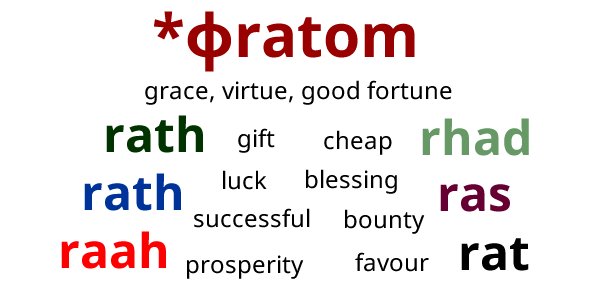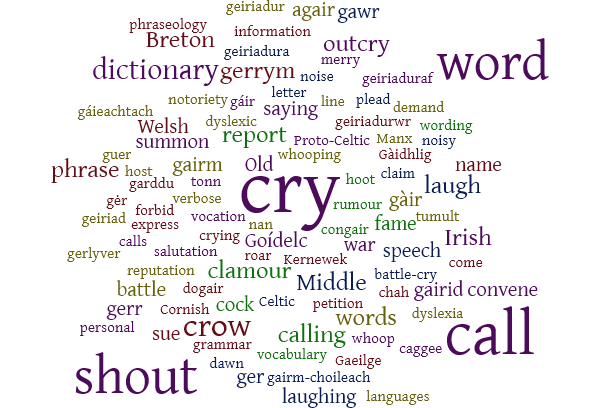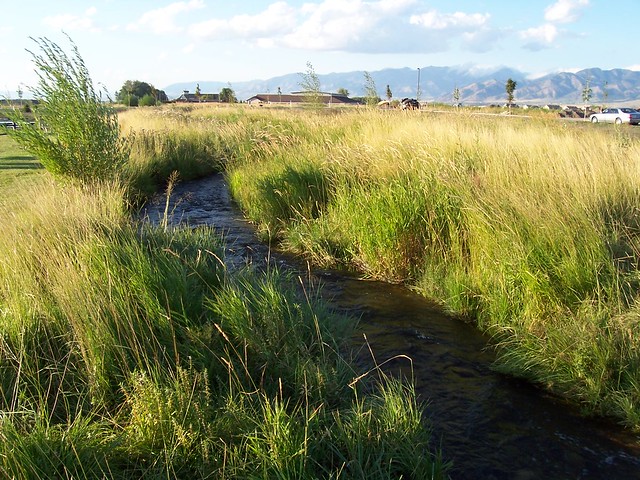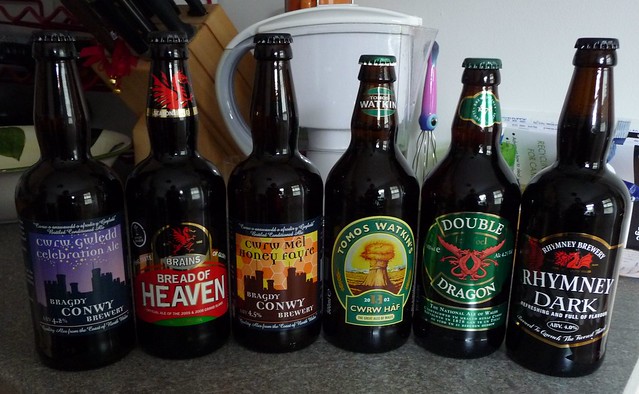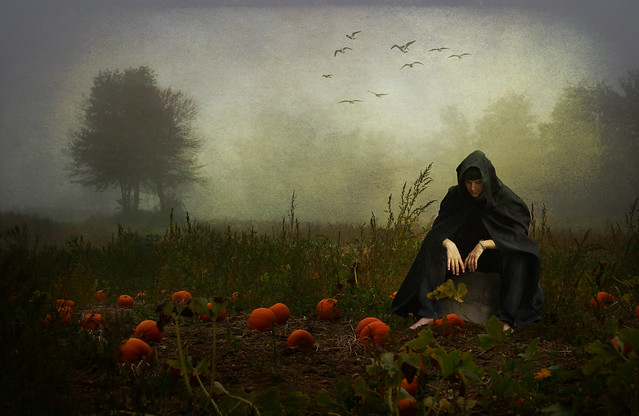Words for thunder and related words in Celtic languages.
| Proto-Celtic | *toranos = thunder |
|---|---|
| Gaulish | *taranus = thunder Tanaris / *Toranos / *Tonaros / *Tanaros = Celtic god of thunder. |
| Old Irish (Goídelc) | torann = thunder |
| Irish (Gaeilge) | torann [ˈt̪ˠɔɾˠən̪ˠ/ˈt̪ˠʌɾˠən̪ˠ] = noise, thunder, (tumult of) battle toirneach [ˈt̪ˠoːɾˠn̠ʲəx/ˈt̪ˠaːɾˠn̠ʲa(x)] = thunder, thunderclap toirniúil = thundery, thundering, noisy torannach / toranda = noisy torannáil = (act of) making noise, rumbling marbhthoirneach = subdued, distant thunder |
| Scottish Gaelic (Gàidhlig) | torrann [tɔr̪ˠən̪ˠ] = loud murmur, rumble, thunder torrunn [tɔr̪ˠən̪ˠ] = loud murmur, rumble, thunder toireann [tɤrʲən̪ˠ] = thunder tàirneach [taːr̪ˠn̪ʲəx] = thunder tàirneanach [taːr̪ˠn̪ʲənəx] = thunder torrann-sgòth = thundercloud mòthar an tàirneanaich = the roar of thunder |
| Manx (Gaelg) | taarnagh / taarnaghey = thunder, thundering rooit haarnee = thunder-clap bodjal taarnee = thunder cloud frass taarnee = thunder shower |
| Proto-Brythonic | *taran = thunder |
| Middle Welsh (Kymraec) | taran = (peal of) thunder, thunderclap |
| Welsh (Cymraeg) | taran [ˈtaran/ˈtaːran] = thunder, thunderclap, thunderbolt taranau = thunder taranu = to thunder, roar, fulminate, vociferate, cause/give forth thunder taran(i)ad = thundering, clap of thunder, roar, loud noise like thunder mellt a tharanau = thunder and lightning |
| Old Cornish | taran = thunder |
| Cornish (Kernewek) | taran = thunder tarenna, taredna = to thunder taran sonek = sonic boom tardh taran = thunderclap |
| Old Breton | taran = thunder |
| Breton (Brezhoneg) | taran = thunder, thundering, flashes, growls, grumbling |
Etymology: from the Proto-Indo-European *(s)tenh₂- (to thunder) [source].
Words for thunder in Germanic languages come from the same PIE root, via the Proto-Germanic *þunraz (thunder, Germanic deity), including thunder in English, donder in Dutch, Donner in German, and torden in Norwegian, and also the Old Norse Þórr (Thor – god of thunder), from whom we get the word Thursday [source].
The English word tornado comes from the same PIE root, via the Spanish tronada (thunderstorm), from tronar (to thunder), from the Latin tonō (to thunder), from which we also get words for thunder in Romance languages [source].
The name of the River Tanaro in northwestern Italy comes from the Latin Tanarus, from the Gaulish *Tanaros [source].
Words marked with a * are reconstructions.
Sources: Wiktionary, Am Faclair Beag, Online Manx Dictionary, Teanglann.ie, eDIL – Electronic Dictionary of the Irish Language, logainm.ie, In Dúil Bélrai English – Old Irish glossary, Geiriadur Prifysgol Cymru, Gerlyver Kernewek, Dictionaire Favereau, TermOfis, Le dictionnaire diachronique du breton, Geriafurch, English – ProtoCeltic WordList (PDF), Etymological Dictionary Of Proto Celtic


